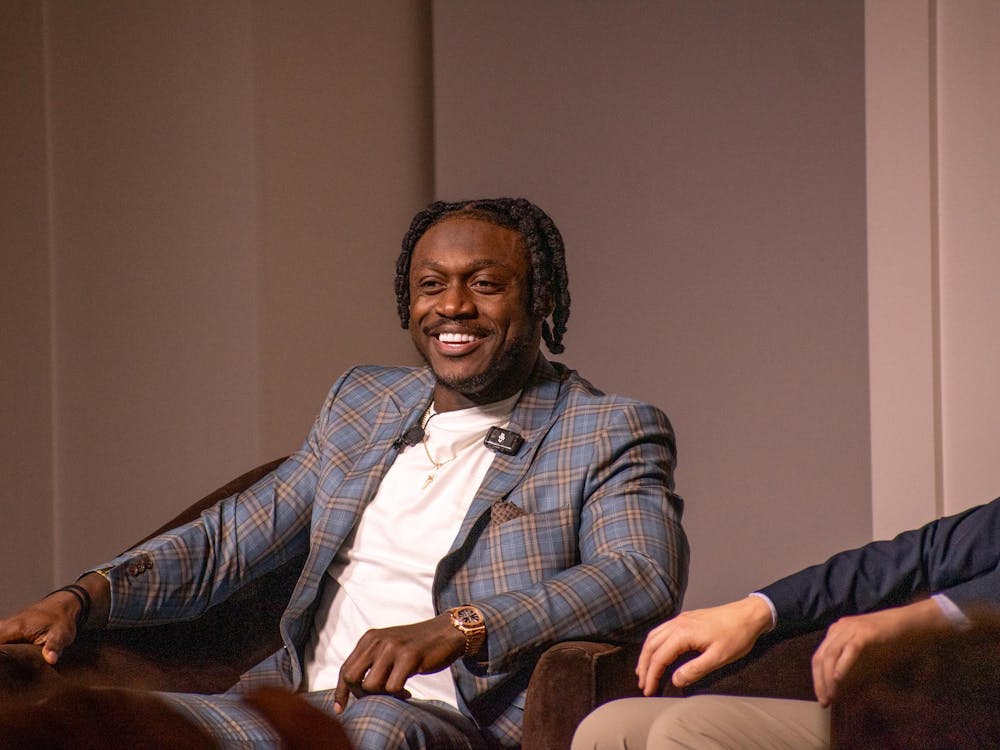I’ve become a sports betting guy.
For years, the industry has piqued my interest. I’ve enjoyed watching the NFL or college football games while taking an occasional peek at the spread to see how good the bookies’ line was. Since it became legal, I’ve downloaded the apps and tried them out and had my fair share of fun (and even made a bit of money, too). I’ve even found enjoyment in college basketball and hockey – two sports I didn’t grow up with and was never interested in watching before – after seeing the odds online and placing the occasional bet.
And I immediately see the pathway to gambling addiction that these apps create.
It’s so easy to play. Depositing money takes two clicks; placing a bet takes three. There’s flashy offers and the promise of a big win for someone careless enough (or “risk-tolerant”, to be polite) to put their hard-earned dollars on something incredibly unlikely.
We’ve seen this story before.
Like so many of my fellow Miamians, I went to middle and high school in Ohio during the height of the opioid crisis. In my sophomore year of high school, Dayton, Ohio – which I lived barely 15 minutes away from – was named the “overdose capital of the United States.”
Every year, sometimes twice a year, us students had to troop into the auditorium to hear from guest speakers about the dangers of drug use. These lectures focused on how easily us young people living in the deindustrialized cities of the Rust Belt could fall into a cycle that led to words like “heroin” and “fentanyl.”
That didn’t happen on its own. In 2006, Americans were dispensed more than 215 million prescriptions for opioid medications. In each year from 2010 to 2012, that number was more than 250 million.
The National Institute of Drug Abuse reports that 80% of heroin users first used prescription opioids. Men, especially those under the age of 45, are the most likely to be fatally affected by opioid abuse — the exact demographic most likely to fall into gambling addiction and especially sports betting.
In a Feb. 15 meeting, PENN Entertainment, the owners of Barstool Sportsbook, accepted a $250,000 fine for promoting the sportsbook’s app to college students at an event near the University of Toledo in November of last year. At the same meeting, DraftKings accepted a fine of $350,000 for allegedly mailing ads to people under the age of 21.
It’s pretty clear why these demographics are the target of specific advertising.
According to Yale Medicine’s research on gambling disorder, between two and seven percent of youths develop a gambling disorder, compared to around one percent of adults. College students are more likely to gamble than the general population, with research from the National Council on Problem Gambling noting that almost one in five gamble on a weekly basis.
Enjoy what you're reading?
Signup for our newsletter
We can see a possible future for ourselves in what’s happened in a similar country – Australia.
Gambling is ubiquitous in Australia. “Pokies”, or electronic slot machines, can be found in hotels, pubs, social clubs and restaurants in cities and towns across the country. The country legalized gambling in the 1950s, and today there are an estimated 200,000 pokies around the country – one for every 128 people. In some areas, especially those that are predominantly lower-income or ethnic minority, that rate can reach as high as one in 50. Australians lose an average of $1,000 per adult per year — the highest rate in the world — and people 18-34 were found in a 2020 study to be the most likely to be at risk of gambling-related harm, especially from the growth of online betting during the COVID-19 pandemic.
We aren’t there yet. Online gambling is still in its infancy if not entirely illegal in most states, and physical machines are still generally restricted in where they can be placed. But the power of lobbying on the actions of federal and state governments is more well-documented than ever, and as betting companies make ever-greater profits from the introduction of sports betting, more and more pressure will be put on our legislators to further deregulate the industry.
We’re never going to get rid of sports betting. As detailed by The Miami Student in February, minors have been gambling for years, and that won’t stop anytime soon.
But we can at least try to make social change. In a study commissioned by the British charity GambleAware, YouGov found that nearly half of all gambling addicts weren’t receiving treatment. Many gamblers in the study noted their difficulty with overcoming the level of stigma attached with being open about their addiction. Gambling addiction is individualized, and therefore stigmatized, while we have in many ways overcome stigmas toward those with alcohol or drug addictions.
In a region ravaged by addiction, coming out of a pandemic that has put ever greater stress on everyone in this country, now, more than ever, we have a duty to look out for each other.
There’s always a better future on the horizon. And I’d bet that we can get to it.
Problem gambling is a serious health issue, and can have real negative effects on your personal, social, and professional life. If you are concerned about your gambling habits and wish to seek help, call the National Council on Problem Gambling’s helpline at 1-800-522-4700, or the Ohio Problem Gambling Helpline at 1-800-589-9966. Other resources are available through the Problem Gambling Network of Ohio.




